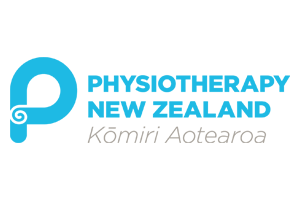Client Story
Physiotherapy New Zealand: A National Journey Towards Data-Driven Patient Care


Demonstrating the Value of Physiotherapy: The PNZ Outcomes Project
In 2022, Physiotherapy New Zealand (PNZ) initiated a project to measure the impact of musculoskeletal physiotherapy on patient outcomes across Aotearoa. Faced with the growing demand for data-driven healthcare decisions and an opportunity to advocate for members and patients using national-level evidence, PNZ sought to demonstrate the profession’s value through robust, standardised data.
Addressing the Challenges of Data-Driven Advocacy
A key challenge for PNZ at the time was the absence of national clinical outcomes data to effectively advocate for physiotherapy. Health officials indicated that funding decisions would be increasingly reliant on evidence of measurable patient outcomes. Recognising this, PNZ aimed to create a system that could provide compelling data to funders, policy makers, and other stakeholders.
Designing a Patient-Centred National Data System
The project’s design focused on determining the feasibility and benefits of a national data system that collect outcomes directly from patients from multiple systems, in both public and private musculoskeletal settings.
PNZ partnered with patient-reporting software provider Cemplicity, to develop an automated system that collects standardised data directly from patients about their outcomes and experience following physiotherapy.
Unlike traditional methods where physiotherapists manually completed outcome measures during appointments, this system collected data outside the physiotherapy consultation and reported the results back to physiotherapists through an electronic portal. The portal provided insights at individual, clinic and national levels, allowing physiotherapists to track progress, compare results, and measure improvements against clinically significant benchmarks for outcomes. By introducing standardised measures across public and private musculoskeletal settings, PNZ created a consistent and aggregated data system for the first time in Aotearoa.
Driving Quality Improvement through Standardisation
Another major goal of the project was to address the inconsistent use of outcome measures in practice. Physiotherapists often relied on personal preferences for data collection, making it difficult to draw meaningful conclusions on a national scale. This system introduced standardised measures for musculoskeletal physiotherapy, enabling physiotherapists to monitor results and drive quality improvement.
Leadership and Collaboration
The success of this initiative hinged on the people involved. Clincs with strong administrative support and engaged clinical leaders achieved the most engagement with patients. These leaders championed the project, motivated their teams, and reinforced its purpose and value.
A total of 25 PNZ member businesses participated in the study, showcasing collaboration across clinics of varying sizes and both public and private sectors. This collective effort demonstrated the professions’ ability to work together towards a shared vision.

Lessons Learned: Patience and Long-term Data
PNZ quickly realised that meaningful patterns take time to emerge. “You need at least a year of data collection to start seeing significant trends,” PNZ explained. The early months were challenging, with limited immediate feedback for clinicians. However, as the data accumulated, it became clear that physiotherapy made a substantial difference in patient outcomes and care experiences.
The data also revealed inequities in access to care, underscoring the need for targeted advocacy to improve equity.
Sustainability Challenges
While the project demonstrated its potential, sustaining it long-term proved difficult without additional funding. Integrating diagnostic data and expanding the system’s capabilities would have enhanced its value but required significant investment. By the end of 2024, PNZ made the difficult decision to end the project. Although the system officially closed on 31 December, it continues to provide a wealth of insights and a model for future initiatives.
Advocacy Insights and the Path Ahead
Together with Cemplicity, PNZ demonstrated that a national, patient-centred data collection system is both possible and transformative. It demonstrated clinically significant improvements in patient-reported outcomes and overwhelmingly positive patient experiences. These results highlight the value of musculoskeletal physiotherapy and provide a foundation for stronger advocacy efforts.
By retaining ownership of the data, PNZ ensured that the project prioritised the needs of patients and physiotherapists, rather than external contract requirements. The lessons learned from this initiative will shape future projects, ensuring physiotherapy continues to be recognised as a cornerstone of musculoskeletal healthcare in Aotearoa. While the project has officially ended, it leaves behind a framework and data set that strengthens PNZ’s ongoing advocacy for equitable access and improved funding for physiotherapy services.

